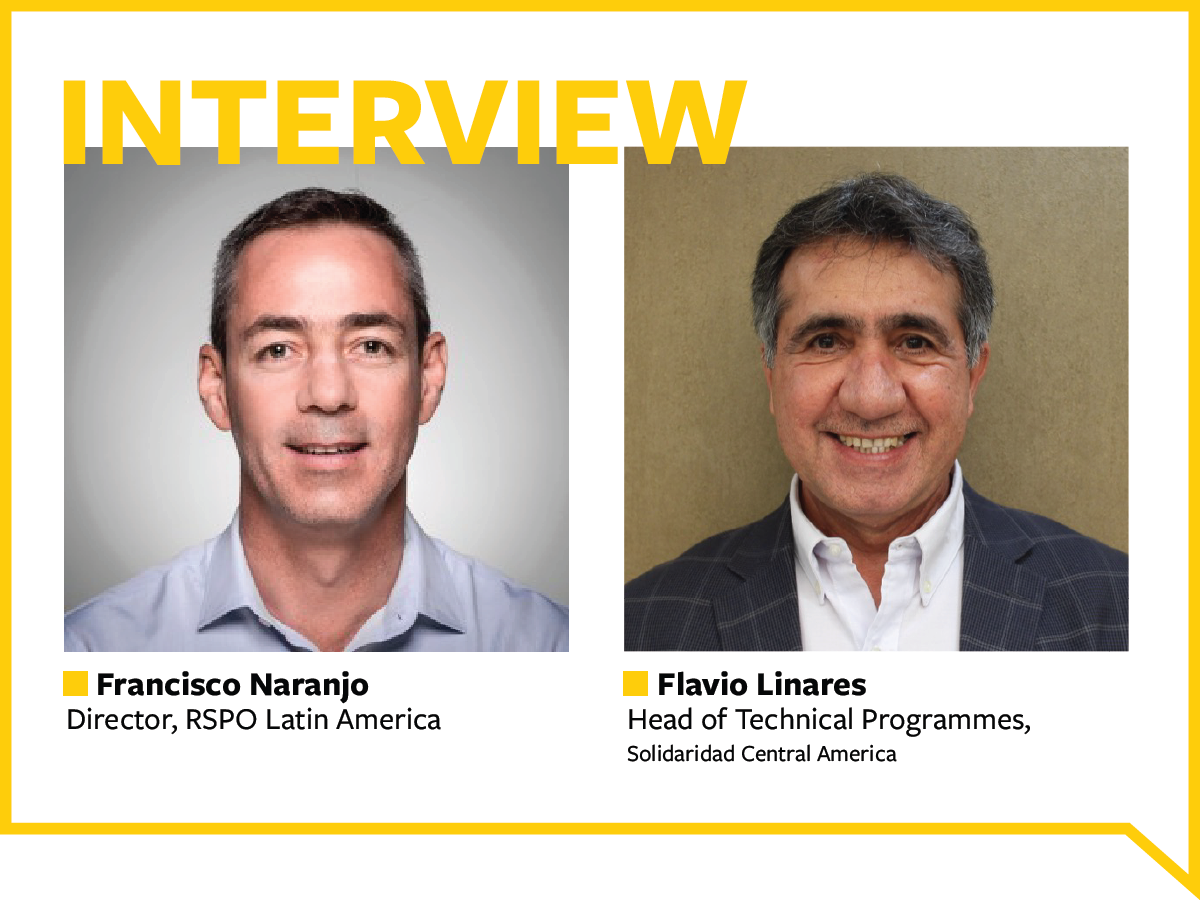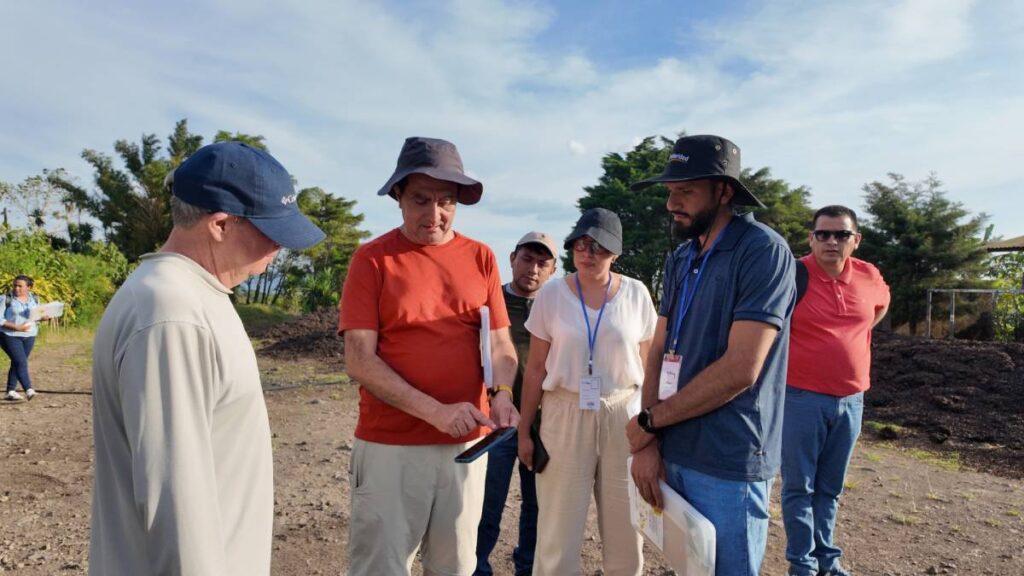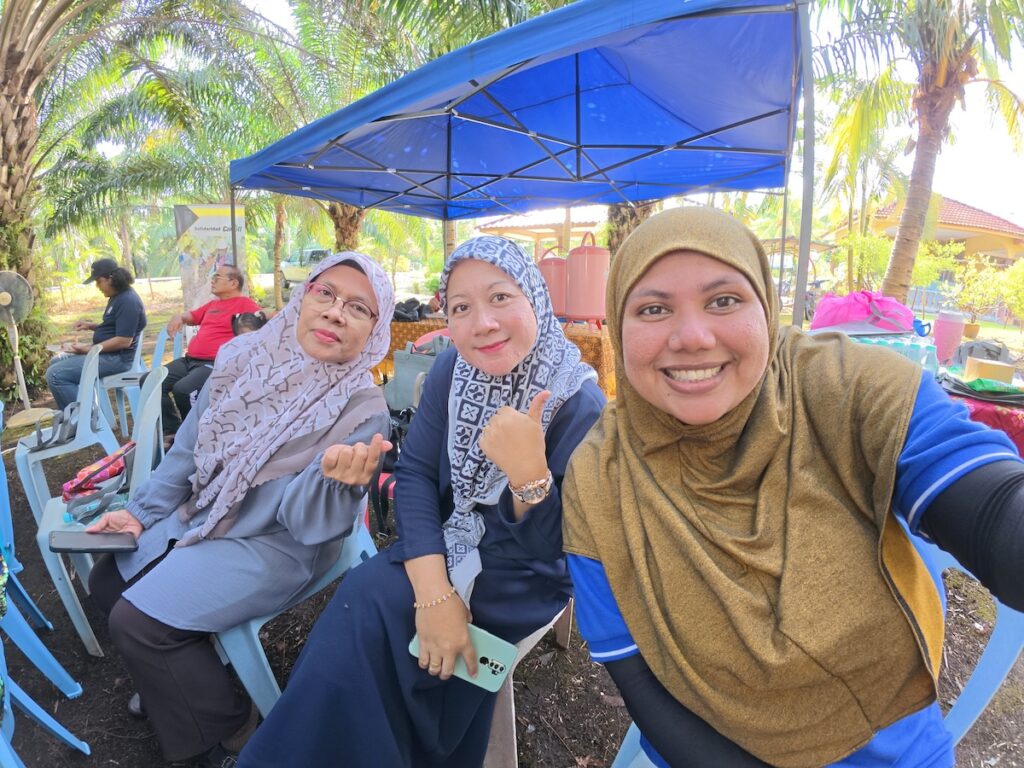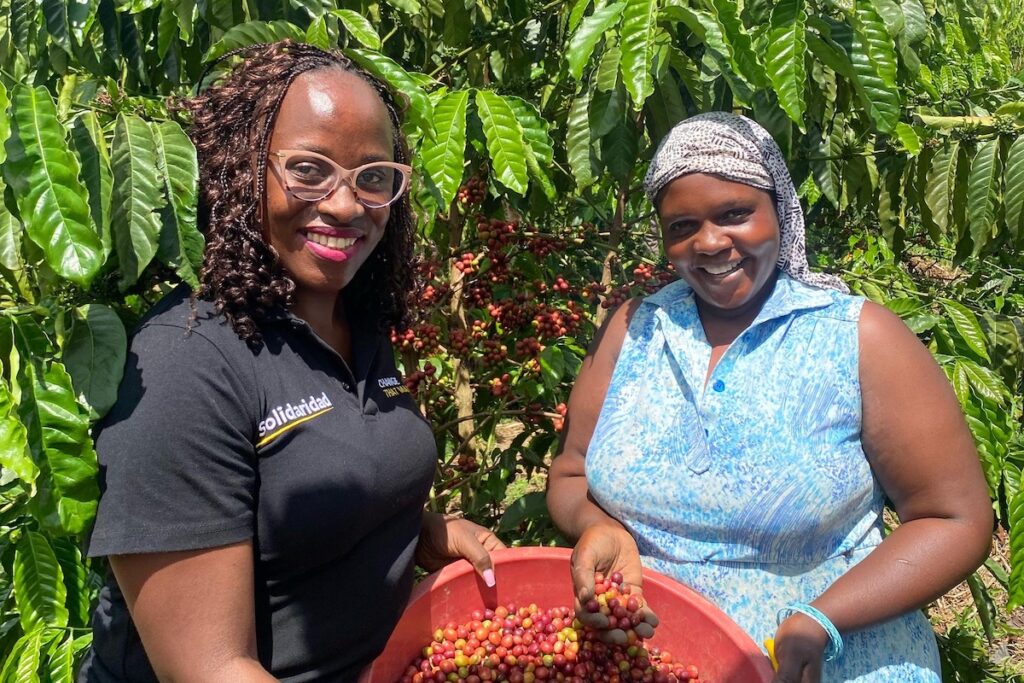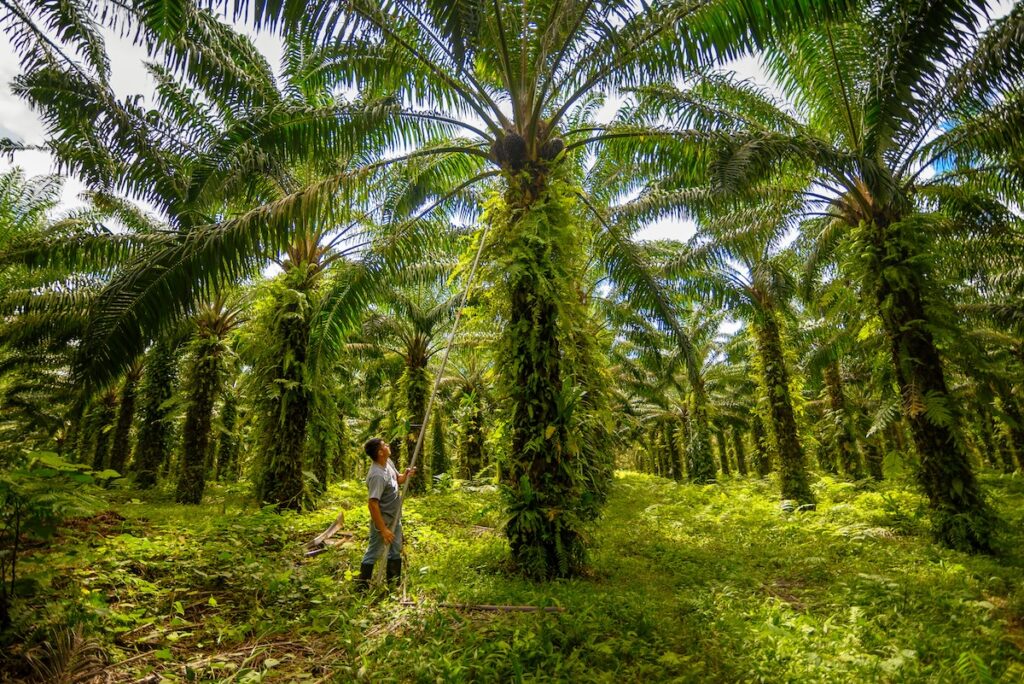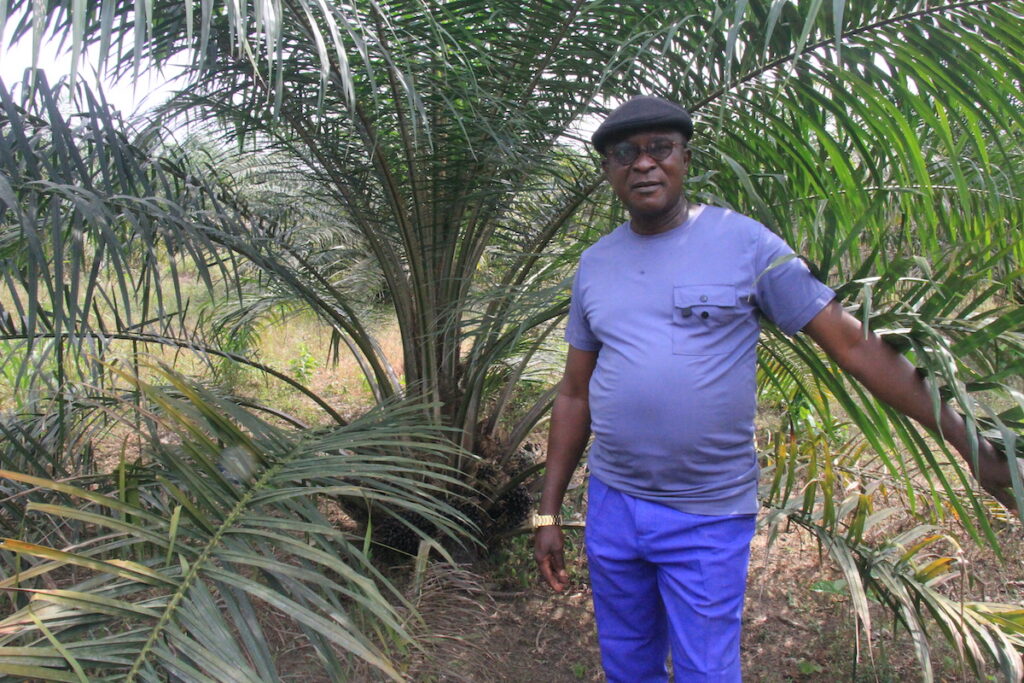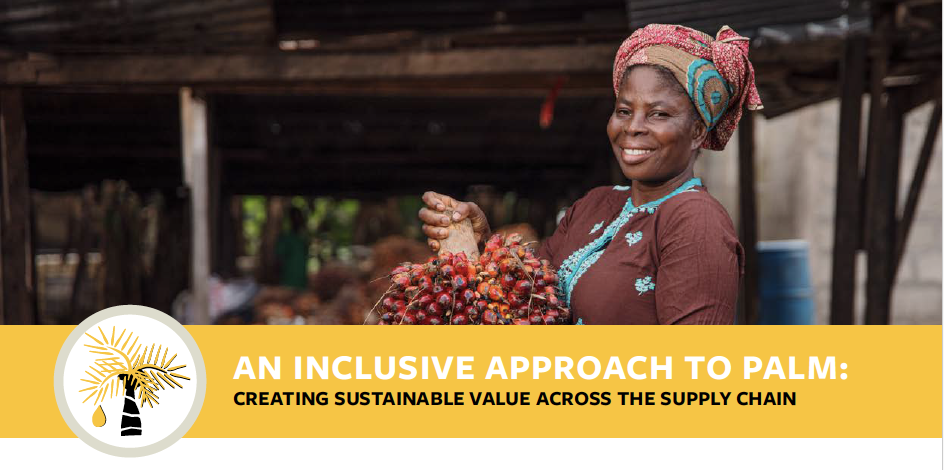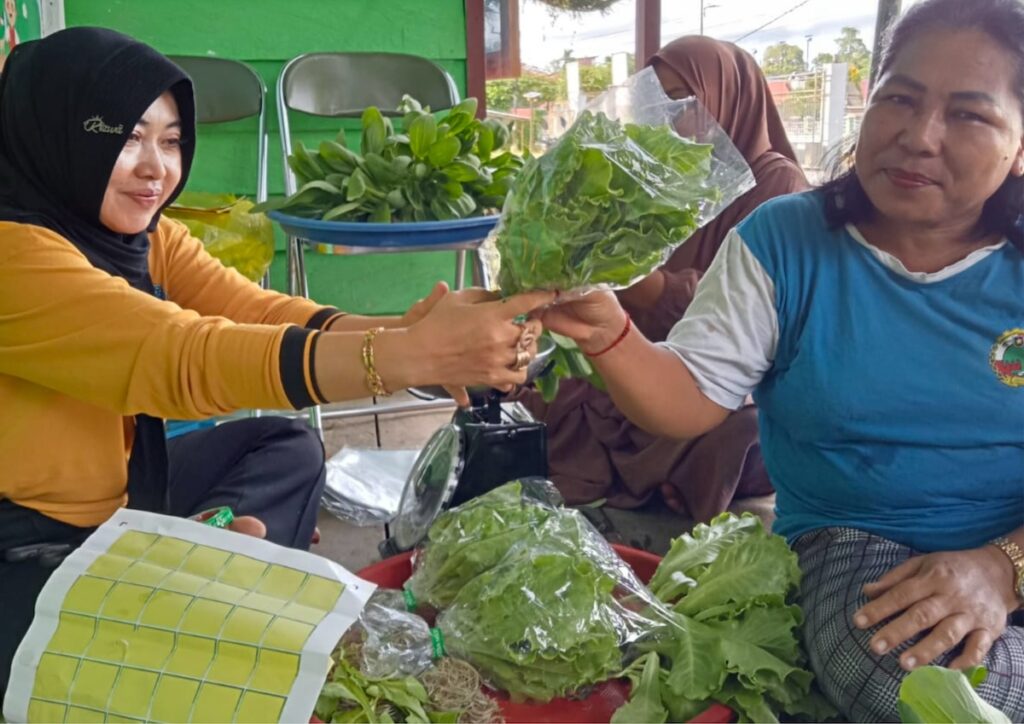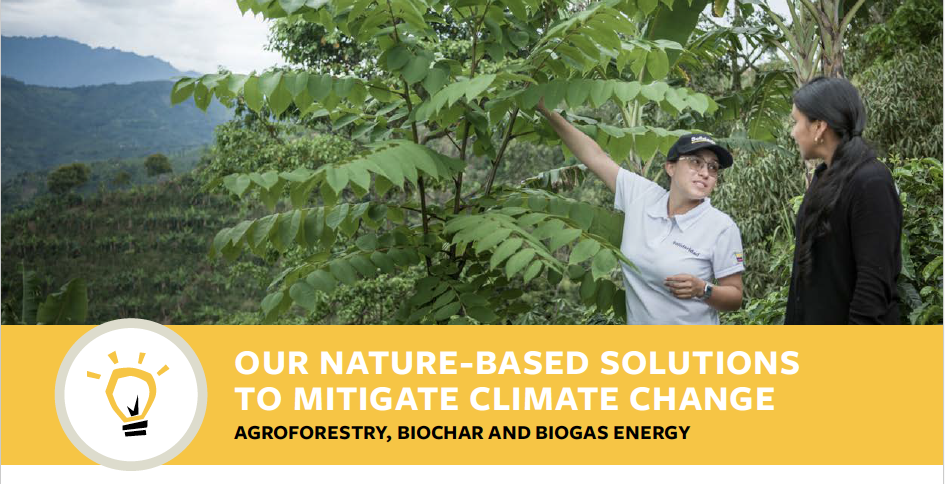In this interview, Francisco Naranjo, Director of RSPO Latin America, and Flavio Linares, Head of Technical Programmes for Solidaridad Central America, Mexico and The Caribbean, endorse United Nations (UN) messages, which recognize that in sustainable development, economic growth is necessary in order to uphold social justice.
Sustainability standards promote social justice
The interview, which will be published in three instalments, also highlights the importance of transparent and inclusive processes for the development of sustainability standards and recognizes the importance of smallholders in the oil palm value chain. In this first instalment, Francisco and Flavio discuss human rights and how the RSPO contributes to protecting them.
Why is it important to discuss the protection of human rights in a sustainable oil palm value chain?
Francisco Naranjo: All efforts made for the sustainable production of palm and palm oil have to do with the idea that palm cultivation and oil production can be transformational for the most disadvantaged sectors in palm-producing countries. RSPO is focused on maximizing the social, economic and environmental benefits of producing palm oil— which can be an engine of transformation of our societies, as long as it is done in a sustainable way. For this reason, it becomes essential to frame this sustainability proposal by placing humans at the center and respecting their rights.
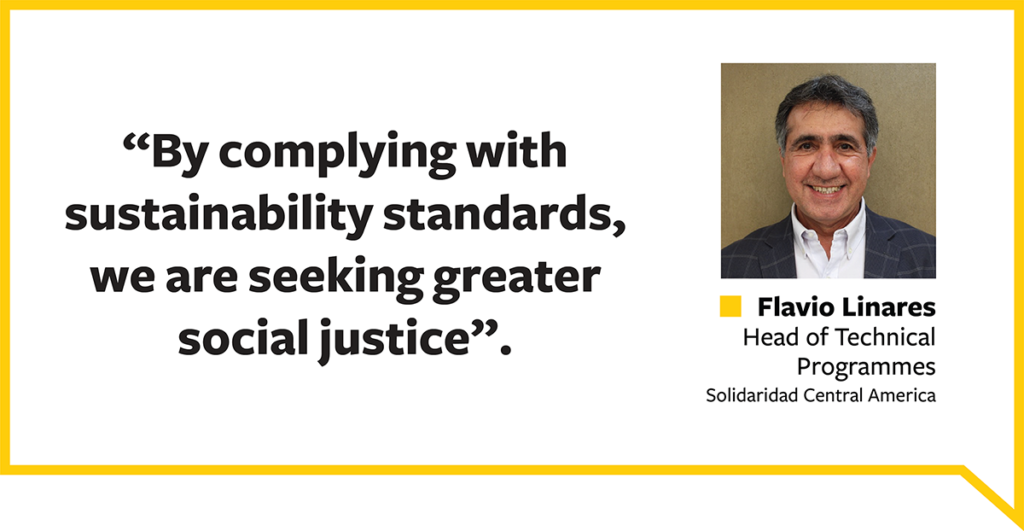
Flavio Linares: From the moment we discuss sustainability, we should strive for inclusivity. In Solidaridad, as an RSPO member and ally, we have set ourselves the task of making the standards known to any producer, small, medium, large, producer-owned companies or corporate group that is producing oil palm fruit and producing palm oil, so that they can comply transparently and responsibly. With training, implementation, measurement and verification of good social practices, we are seeking greater social justice: the rights of workers and producers should be recognized, validated and, above all, respected to maintain balance and harmony in an area as important as oil palm. Justice stems from transparency. Modern certification standards for sustainability in palm, sugar, coffee and cocoa chains seek greater transparency. It is by practicing good community relations with companies, producers, through social dialogue and transparency that opportunities arise for progress and for improving prevailing conditions.
What are some of the actions implemented to protect human rights through RSPO or its certification?
Francisco Naranjo: We have a large set of elements that are designed to ensure that our members fully respect human rights in everything that has to do with their palm oil production environment.
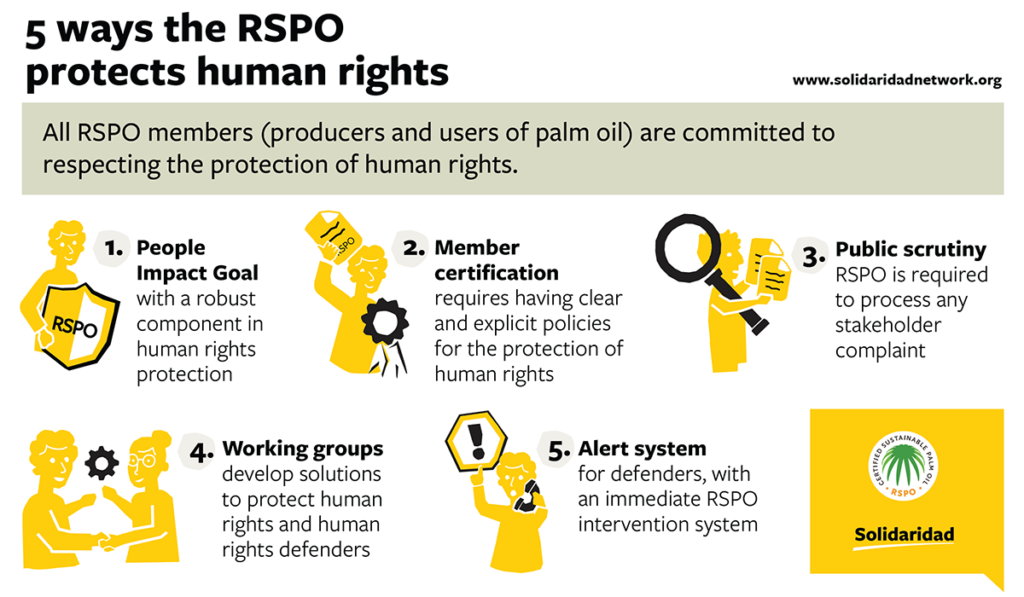
- The P&C are divided into three fundamental impact goals: people, planet and prosperity. Within the People Impact Goal there is a strong human rights protection component.
- For certification, our members (companies, producers) must have clear and explicit policies for the protection of human rights. This is verified through an audit process.
- Any interested party can bring to RSPO’s attention any suspected breach of compliance by one of the members. The RSPO is required to process that complaint.
- Within the RSPO working groups, the best mechanisms and alternatives are processed and discussed so that palm oil can be produced with full respect for human rights and protection of human rights defenders.
- Any interested party can use the hotline to alert a human rights defender in need of RSPO’s help. We have an immediate intervention system to ensure that they have protection and assistance in case they face any risk to their health, well-being or community.
Flavio Linares: Also, in 2019 [with a smallholders strategy], RSPO chose to focus on smallholder producers, so that they can improve their productivity and comply with the independent smallholder standard, which includes due diligence on human rights topics. This allows smallholders to be viewed as small enterprises, enabling them to improve yields and income and to have a fairer treatment in the global market scenario. At Solidaridad, we aspire for smallholders to be seen as essential; as a relevant link within the value chain and not just a supplier of fruit. If we improve their livelihoods, we can also benefit their family and the community in which they operate.
Read part two here, and look for part three of this three-part interview next week. For questions about our work with the RSPO standards in Central America, please contact Flavio Linares, Head of Technical Programmes.

